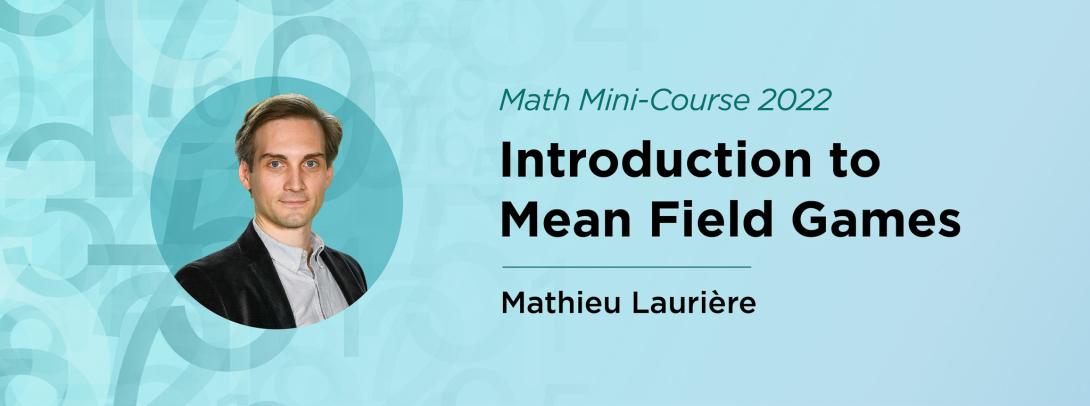Why do we follow crowdflow when we commute on the subway? How do consumer decisions impact global economic markets? To answer these questions, researchers use mean field game theory, a relatively new topic in mathematics that studies strategic decision making.
On Thursday December 1, Assistant Professor of Mathematics and Data Science Mathieu Laurière launched a three-day mixed mode mini-course on mean field games. The mini-course was open to the entire NYU Shanghai community and taught the theory through a combination of lectures and interactive discussions.
Over the course of three hour-long sessions, Laurière, who teaches Calculus and Machine Learning, guided participants through an introduction to mean field game problems, equipped them with tools to study optimality conditions based on deterministic or stochastic analysis, and engaged them in discussion about numerical methods that are key to the development of real-world applications.
Laurière’s own extensive research on the subject began during his PhD studies and continued throughout his time as a postdoctoral fellow at the NYU-ECNU Institute of Mathematical Sciences. The mini-course has provided him a new opportunity to deepen his understanding of the research. “Preparing a class, thinking about how to transmit knowledge and address students’ questions helps me to have an ever more precise understanding of the topic,” he said.
“The overarching goal is to understand how global outcomes emerge as the consequence of small individual decisions,” said Laurière, citing greenhouse gas emissions and macroeconomic markets as examples. “We feel that our decisions have zero impact on the system, and yet, the general situation is the result of all our individual choices.” One focus he hopes to explore with students is understanding how governments can incentivize companies or people to reduce carbon emissions. “It’s a nice application for this topic and for the real world,” he said.
His advice for students studying math and data science? Combining forces may inspire new ideas and solutions. “Mathematicians can contribute to the foundations of data science, and mathematical tools can potentially inspire new developments,” he said. “Machine learning and data science can contribute to mathematical activities as well. In this context, combining math and data science is really a fruitful direction for students, and the double major program at NYU Shanghai fits very well in this direction.”
"The mini-course series has been a long-standing tradition of the Institute," said Pierre Tarres, co-director of the NYU-ECNU Institute of Mathematical Sciences at NYU Shanghai. "It allows all of us to take the time to understand a particular topic in depth, and it is particularly valuable to PhD students and postdocs. When the lectures are given by colleagues at NYU Shanghai, it also creates important connections within our group, both scientific and human, which have been so much needed since the pandemic. Several colleagues gave excellent mini-courses in recent years, such as Keith Ross, Shuyang Ling, Alejandro Ramirez, Andrew Swan, Alvaro Mateos Gonzalez, amongst others. Mathieu Laurière gave a splendid overview of mean-field games, a topic on which he is working with the best experts in the world, including René Carmona (Princeton) and Fields medalist Pierre-Louis Lions."
Prior to joining NYU Shanghai, Laurière was a postdoctoral research associate at Princeton University in the Operations Research and Financial Engineering (ORFE) department. Most recently he was a visiting faculty researcher at Google Brain, for the Brain Team in Paris, France.
This year Laurière was granted the prestigious 2022 Excellent Young Scientist award by the National Natural Science Foundation of China (NSFC) which will create more visibility for his research as well as provide resources to further his goals of supporting students and collaborating and connecting with other researchers worldwide.
Watch 2022 Mini-Course by Mathieu Laurière - Introduction to Mean Field Games
Previous mini-courses:
2018 Mini-Course by Yves Le Jan - Markovian Probability
2016 Mini-Course by Chuck Newman - Statistical Mechanics and the Riemann Hypothesis


